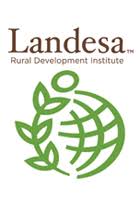Namati: Innovations in Legal Empowerment
Namati is an international organization that tests the potential of legal empowerment through innovative interventions and research. Through our work, we seek a better understanding of the impacts of legal empowerment and the most effective mechanisms for achieving them.
As a means of cultivating a more robust movement for legal empowerment, Namati also hosts a growing Global Legal Empowerment Network of practitioners and supporters. Network members are active in every continent in the world, whereas Namati’s programs and research focus on exploring the potential of legal empowerment in specific countries, including Sierra Leone, India, Liberia, Mozambique, and Uganda.
Mission: Building a movement of grassroots legal advocates
Resources
Displaying 41 - 45 of 69RETURNS OF GRABBED LAND IN MYANMAR: PROGRESS AFTER 2 YEARS (English, Burmese မြန်မာဘာသာ)
Namati submits this briefing paper to assist the government of Myanmar and other interested parties in efforts to ensure the
implementation of the 2013 recommendations of Parliament’s Farmland Investigation Commission. The commission is tasked
with scrutinizing land grab cases and to promote justice for Myanmar’s citizens whose land was taken without due process or
compensation.
According to the Secretary General of the Farmland Investigation Commission, as of June 2015, approximately 30,000 cases have
RECOMMENDATION FOR IMPLEMENTATION OF PRO-POOR LAND POLICY AND LAND LAW IN MYANMAR: NATIONAL DATA AND REGIONAL PRACTICES
Myanmar is undergoing a major transition, opening space for significant change for the first time in decades. Secure land tenure for smallholder farmers and rural communities is essential in a heavily agrarian nation like Myanmar, where millions in the rural population – nearly 70% of the country – depend on agriculture for their livelihoods.
Customary Rules and Practices Strengthen Women’s Land Tenure in Rural Mozambique
Under Mozambique’s Constitution and Land Law (1997), communities may legally govern their lands and natural resources according to customary norms and practices, so long as local customs do not contradict national law. However, rising land scarcity and associated increases in land value are leading some families to “reinterpret” custom as sanctioning the dispossession of widows from their marital lands.
Protecting Community Lands and Resources
Mozambique currently has one of the highest rates of land concessions throughout Africa. In the coming years, if large-scale land concession grants to private investors are not carefully controlled, the amount of land still held and managed by rural Mozambicans will decrease significantly, with associated negative impacts on already impoverished rural communities.
Walking with villagers: How Liberia’s Land Rights Policy was shaped from the grassroots
In Liberia it is estimated that around half the country’s land mass has been promised to foreign companies and investors. From 2009-11 the Sustainable Development Institute and NAMATI embarked on an action research project to support rural communities to protect, document, and manage their customary lands and natural resources. Drawing from lessons learned in the field, they sought to bring the voices and realities from rural Liberia to influential policymakers.








